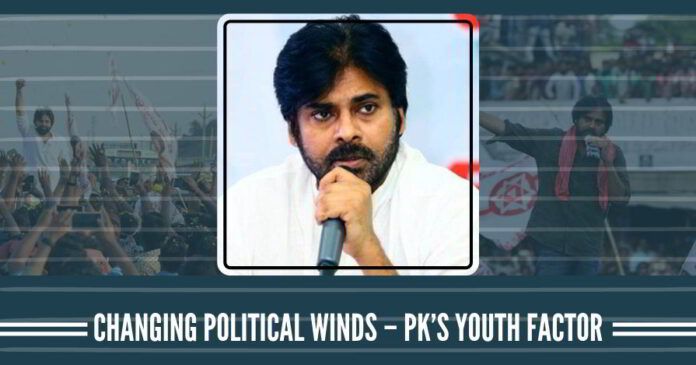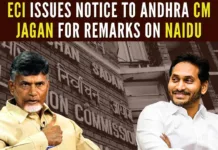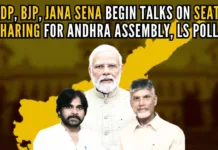
PK speaks not just to Telugu pride but to the whole nation’s development, a rarity in India’s regional politics.
With inputs from Sai Karlapati
He emerges through the rain, wearing a makeshift bandana. Drums erupt in unison as a sea of beaming young faces hold up their cell phones for insta stories. For them, Pawan Kalyan is their homeboy, straight out of their TV sets. “Jai Hind,” the Telugu superstar storms in his deep baritone voice as he punches a fist into the air. His audience, most of who are 25 or younger, respond just as they would in a theatre – with applause and screams of joy. From that moment on, PK the politician owns the stage and he knows it.
In a move that is also uncannily reminiscent of Modi’s arrival onto the national stage, PK’s plea is emotional, nationalistic, and anti-establishment.
With 2014, elections became a seemingly rejuvenated electorate. For the first time, development issues and election “manifesto” were dinner table topics. However, what was truly striking was the rise of a new voter market – 150 million young Indians between the ages of 18 and 23 headed to the polls for the first time.
According to statistics, Indians 35 or younger make up more than 60% of its population. The sheer number is mind-boggling. Not surprisingly, political parties have been quick to take note; the word “Yuva” was featured in almost every major scheme across the nation and parties scrambled to find their “youth” mojo. The latest poster-boy on the youth bandwagon? The 46-year old Pawan Kalyan who heads his Jana Sena Party (JSP), and is heading into the Andhra Pradesh assembly elections.
Pundits predict that the 4-year old JSP will leave a dent in the upcoming elections, thanks to an intelligently designed connect with his loyalists. PK speaks not just to Telugu pride but to the whole nation’s development, a rarity in India’s regional politics. And that message reverberates with India’s youth, which seeks the country’s equal footing with the western world. Featuring keywords such as unification and national pride, PK’s speeches deliberately highlight the many days he has spent learning, reading, thinking. To his applauding audience, he sells himself as the modern-day Chanakya.
This strategy nearly masks his lack of political experience, something that his political opponents frequently call him out on. But, it is a strategy that has worked in the past, across the pond. In 2008, a certain Mr Obama with hardly any experience in governance stormed to the leadership of the free world with his inspirational speeches – that year, 66% of America’s youth voted him into power. While PK is no Obama, there is no doubt that he is able to fire up his base.
In a move that is also uncannily reminiscent of Modi’s arrival onto the national stage, PK’s plea is emotional, nationalistic, and anti-establishment. He denounces sycophancy and corruption and calls out social issues (Uddanam, mining mafia et al.). In comparison to his white-haired counterparts, PK reminds his fans that he too does not come from a generation used to complacency. Right now, PK is telling a story that his young listeners want to hear, and it may just be the gamble that pays in the upcoming Andhra Pradesh elections.
Historically, youth activism has not been a strong indicator of voter turnout in Andhra Pradesh. For example, according to the Election Commission, only 27% of the state’s eligible youth voters have currently enrolled in the voter’s list.
The PK gift shop also veers away from from the political models that the region’s youth see as antiquated. For the uninitiated, the Telugu region has been notorious for caste-based voter affiliations. Earlier this year, the ruling TDP went all out to reward the Kapu community with a 5% quota in jobs and educational institutions. A Kapu himself, PK is well aware that caste-based voting is kingmaker in his world and that any opposition to such reservations would end the actor’s political aspirations. However, to its credit, the JSP manifesto indirectly calls for an overhaul of the reservation system – the party endorses lower income reservations and a political quota for women, while its volunteers celebrate women’s day with gusto. Very tweetable.
While it has created a flutter, the JSP is not without weaknesses. PK is the only known face in the party, and this can prove to be a downer at the local level. In a region consumed with idolizing its movie stars, PK will be subject to severe scrutiny. One misstep and he may find himself in the position that his brother – the movie giant Chiranjeevi- was in when his political aspirations backfired. He has also been unable to provide concrete guidance as to how his ideas will translate to implementation, although of course, that has never stopped anyone in Indian politics. His claims such as knowing beforehand about an impending India-Pakistan war doesn’t help his cause at this time either.
Most importantly, JSP’s biggest challenge may be the very factor that has spurred its growth – PK’s youth audience. Historically, youth activism has not been a strong indicator of voter turnout in Andhra Pradesh. For example, according to the Election Commission, only 27% of the state’s eligible youth voters have currently enrolled in the voter’s list. The elephant in the JSP drawing room should be – how many of their supporters will show up at the polling booth? Moreover, youth patience levels run low, and the JSP might find itself seeking a whole new voter base if it does not deliver this cycle.
Regardless, with PK’s rise, it has become evident that India’s (and Andhra Pradesh’s) politics is headed toward a giant youth dance party. And the message is loud and clear – find us a new tune to dance to.
Note:
1. The views expressed here are those of the author and do not necessarily represent or reflect the views of PGurus.
- Changing Political Winds – PK’s Youth Factor - March 13, 2019
- India’s Slippery Slope of Fair Trials – AoL and NGT - December 6, 2017











I am confused, if I am reading Pgurus or NDTV. Everyone thought PK is an honest good aspiring leader in 2014, but slowly he showed his “comrade colors”. Above that he is most fickle minded person. he didn’t take anything to logical conclusion other than doing “kejri type” agitations.
In fact some of the statements he made are so IRRESPONSIBLE, pakis also picked those tweets and news and started echoing because it serves their agenda of breaking India.
and finally I really doubt youth across all castes are inspired by him.
Looks like PGurus picked someone sitting in US and reading online forums, to write this article OR
Deepa is a fan of PK.
Yes, PK showed comrade colors without hating Hindus, Dharma, Nation. Influence from left is different than following left ideology. And with due respect, you do not know AP ppl or you are not from AP. Many are know about Delhi Natwarlal since beginning, but you cant compare PK with Natwarlal or KamalHasan. Am not PK FAN, but am supporting change in AP.
We cant vote missionaries Jagan, you turn Babu……..Now Many ppl have only option PK.
Don’t know Author is PK fan or not, but surely have knowledge on South and knowledge on topic.
If you want to “SAVE AP”, we need real leadership not these family companies.
I wish , top BJP delhi leaders has no time to build AP BJP team. IF they do, they would have allowed young leaders to emerge in BJP rather than keep listening to old guard who can only do math on caste.
If they did, it would have become a formidable force by now to family run companies like current CBN’s TDP and YSRCP or movie stars who knows nothing but some scripted dialogues.
Reading from comments, its already clear how knowledgeable the author is. But kudos to PGurus team always ready to correct and improve.
not “I wish”,but it is “I think”
According to author a leader who made following comments has nationalistic view..
“Since north indian leaders divided A.P. we should and will fight to divide U.P. into four parts’.
At the height of tension with pakistan he made a comment as author pointed ” One of BJP leader told me that there will be a fight with pakistan before elections”.
He made so many allegation on ruling elite in A.P. when asked for proofs he said I don’t know since people are talking I made allegation.
Above are few irresponsible comments made by Pavan Kalyan. This author might supporter of P.K. But he is just another leader waiting to join in group Arvind kejriwal and kamal hassan.
There is a major Error in the article, Mr. CBN is not kapu, he is kamma.
Where does it say CBN is Kapu? It just says Kapu community was rewarded…
Thanks for pointing it out. This has been addressed.